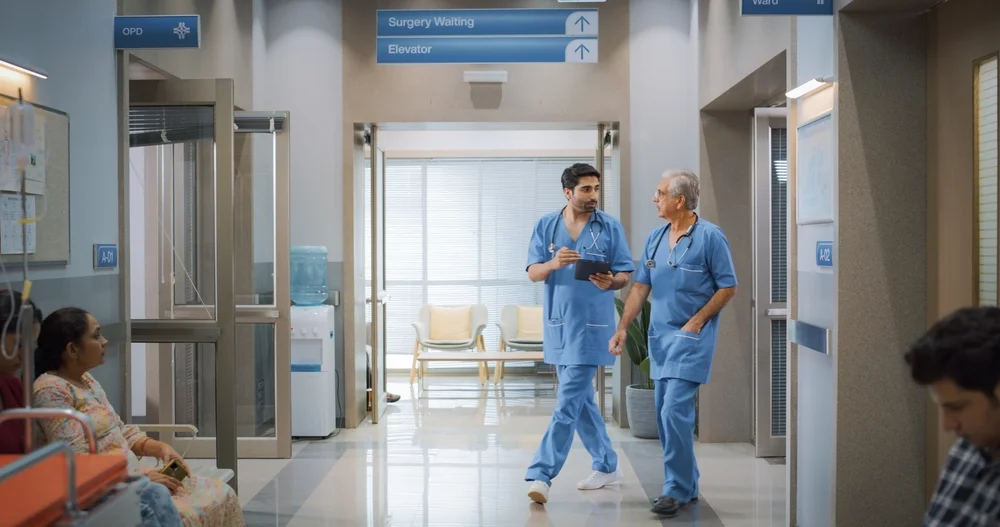Healthcare infrastructure specialists
As hospital estates and design consultants, we work closely with NHS Trusts to identify and articulate key challenges within an NHS estate.
Our healthcare consultancy work focusses on gathering a detailed understanding of all the different facets of a project – from analysing patient and nursing needs to long term estate and wider service infrastructure.
These detailed workflows will form a Development Control Plan (DCP).
Why does an NHS Trust need a DCP?
NHS Trusts need a long term overall context and framework for developing a site. A DCP is a detailed piece of work that provides this critical framework – a masterplan that meets the needs of a hospital estate now and for the future – into the next five or 10 years in many cases.
Once this site plan is in place, it enables a Trust to be proactive and responsive to funding opportunities as they arise. A DCP gives the assurance that decisions can be made without impacting on the future objectives of the estate.
A key benefit of a DCP is that it allows for the development of the NHS estate to be deliverable. Once the DCP is in place, a Trust can be opportunistic as funding becomes available, quickly ensuring that funding is deployed to the critical areas required.
Building for the future
If an NHS Trust does not have a DCP in place, it can mean that when funding opportunities come along, the Trust is poorly placed to be able to come up with a plan and therefore risk building a space in the wrong part of the site. This could severely impact future estate development.
Our approach
We look at a DCP through the lens of our project delivery expertise. Bringing together a multi-disciplinary team of healthcare consultants, we work closely with your stakeholders – including clinical leaders, estates and facilities, strategy teams and executive directors.
Multiple layers of healthcare expertise are brought together via the following workflows:
- Healthcare planning & health economics
- Stakeholder workshops & clinical interviews
- Demand and capacity modelling
- Workshops with our healthcare architects
- Business case support
“By committing to creating a DCP, an NHS Trust is able to define an estates strategy that will be responsive to changing service needs, compliant with legislative changes and delivers the best possible patient and staff experience. It’s not just looking at the building fabric or engineering infrastructure, but establishing and delivering a strategy for long-term patient needs.”
– Tom Lister, Senior Principal, Health Spaces.
Find out more and get in touch.




